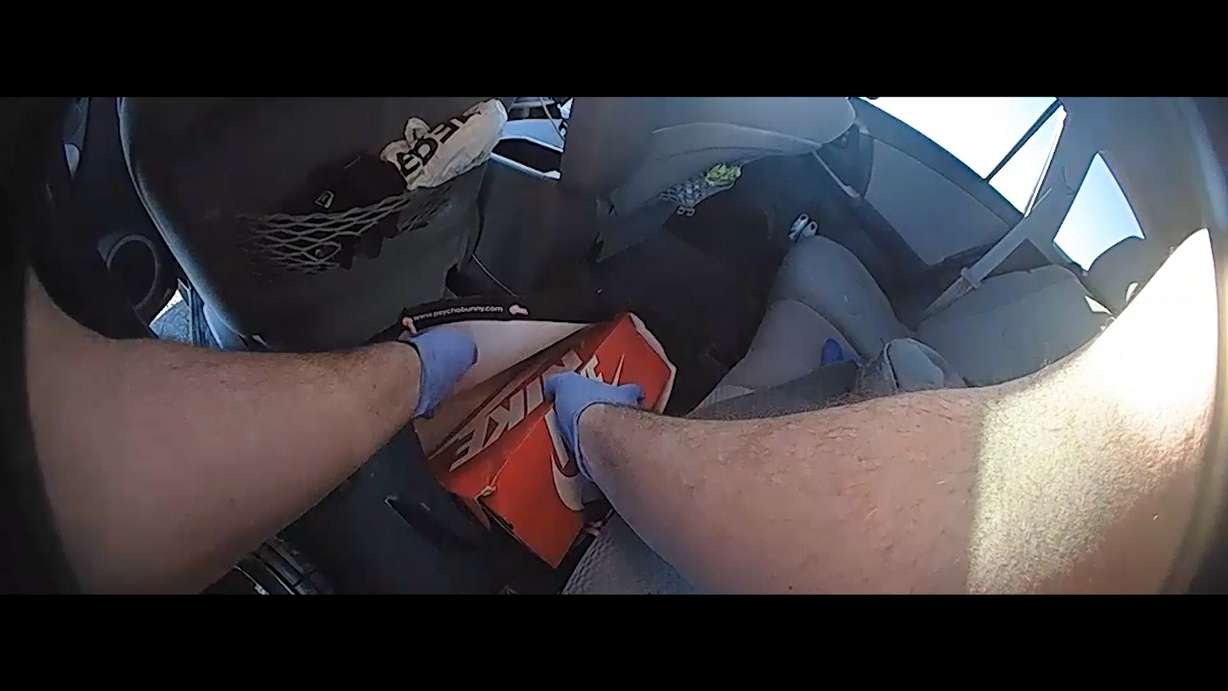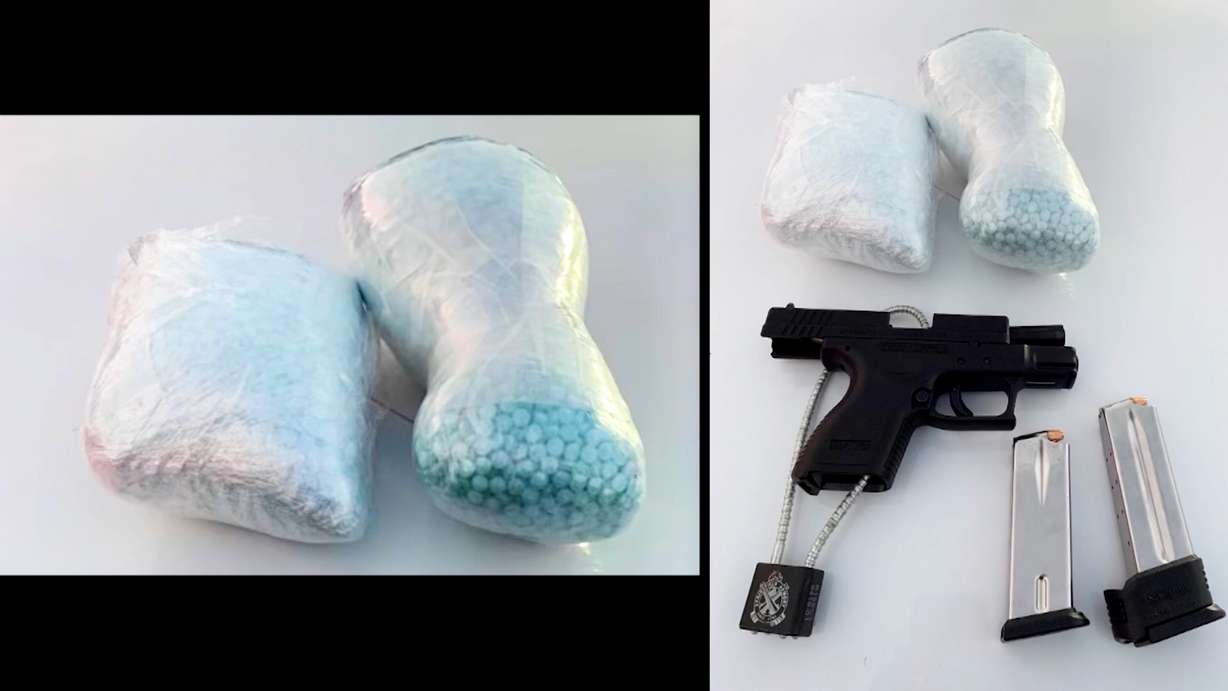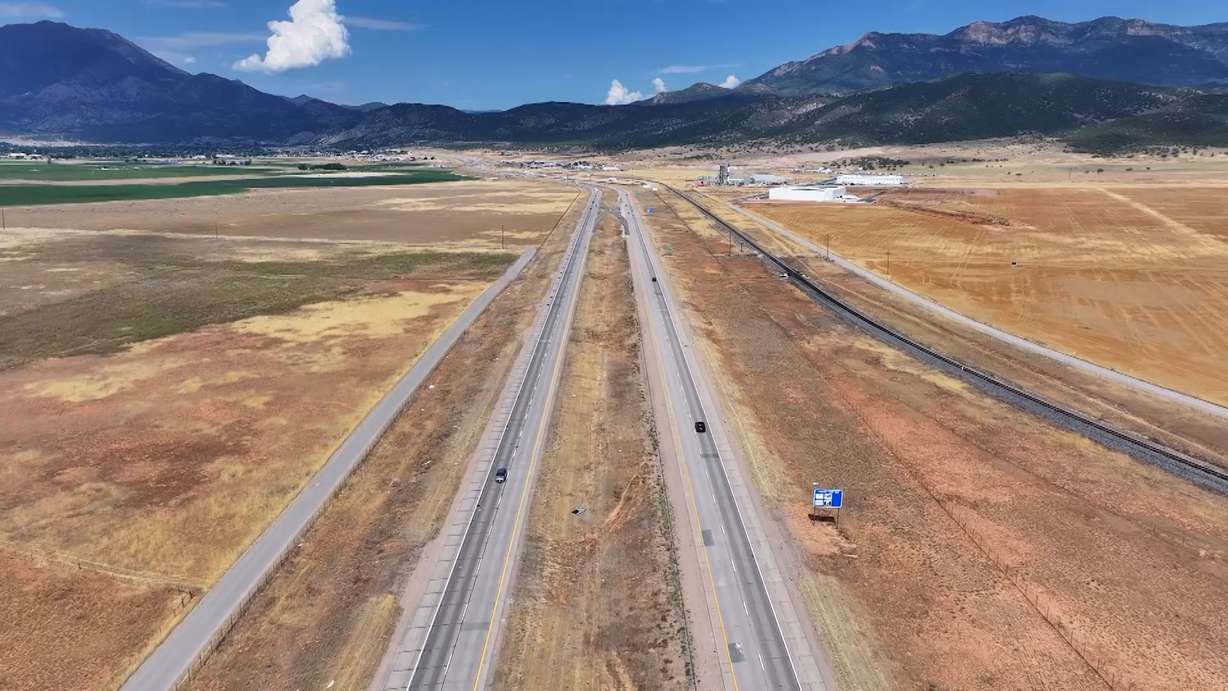SALT LAKE CITY — Inside shoe boxes, luggage, hidden compartments in cars and even a child’s car seat, Utah Highway Patrol troopers find meth, cocaine and fentanyl trafficked along I-15.
In August, the KSL investigators delivered an exclusive look inside the trafficking of deadly drugs through Utah’s busiest roadways. That reporting raised questions about how regular folks are being recruited into transporting drugs for Mexico-based cartels.
“They’ve got couriers who they pay to receive these loads and drive them to distribution cities like Salt Lake City,” said Dustin Gillespie, the U.S. Drug Enforcement Administration’s assistant special agent in charge in Utah.
The KSL Investigators sat down with Gillespie and UHP Maj. Jeff Nigbur to find out who exactly is driving these lethal loads.
“I would think you’ll notice the randomness,” Nigbur said. “You know, when you think criminal you think a specific type of person, right? And then when we encounter some of these individuals they’re regular people, you know, like me and you.”
Investigators say couriers can be grandparents, young adults, U.S. citizens, and non-citizens. They might be traveling as lone drivers, in pairs, or even whole families.
“We’re looking at anything and everything,” said UHP Sgt. Jeff Blankenagel. “A lot of drugs that are coming up I-15 and into Salt Lake are actually being brought in by local-plated cars or cars with Utah license plates.”
But stopping a courier does little to stop the cartels.
“We’ve got leaders and authoritarian figures that are located in Mexico, and then we have individuals who are couriers who know nothing about the overall cartel operations,” Gillespie said. “And that’s by design.”
 Body camera footage shows Utah Highway Patrol troopers’ discovery of drugs inside a shoebox following a traffic stop along I-15 in Oct. 2023. (Photo: Utah Highway Patrol)
Body camera footage shows Utah Highway Patrol troopers’ discovery of drugs inside a shoebox following a traffic stop along I-15 in Oct. 2023. (Photo: Utah Highway Patrol)
To the cartels, couriers are disposable, he said.
“They know perhaps that they were supposed to go to a McDonald’s or a Walmart parking lot in Salt Lake City and drop off the car and walk inside,” said Gillespie.
UHP investigation videos provided to KSL through a public record request show interviews with couriers caught by troopers. In one video, a courier tells investigators he made about 10 deliveries to Utah over a period of six months — but everything from the number he was supposed to call, to the location he was supposed to leave the vehicle, was different each time.
“I don’t know any of the people that I’ve even dropped to,” the man told investigators.
 An estimated 18,000 fentanyl pills, firearm, and ammunition seized by Utah Highway Patrol after a traffic stop along I-15 in November 2023. (Photo: Ken Fall, KSL-TV)
An estimated 18,000 fentanyl pills, firearm, and ammunition seized by Utah Highway Patrol after a traffic stop along I-15 in November 2023. (Photo: Ken Fall, KSL-TV)
Defense attorney Clayton Simms represented a passenger in one of the vehicles stopped in the cases reviewed by the KSL Investigators. Troopers found thousands of fentanyl pills stashed deep in the interior of the vehicle and arrested the two men inside. Simms said couriers are often “blind mules.”
“A lot of times, the people that are transporting these items don’t know the nature of what they’re transporting, the value of what they’re transporting,” he said. “So that is kept secret from them and oftentimes too, the compartments in which the items are in are not accessible to the people in the car.”
The courier Simms represented got a plea deal and avoided prison time.
Both Simms and investigators said couriers are often down on their luck or struggling with addiction themselves, and that’s often how they end up getting the gig. One courier told investigators he got into doing drug drops through a man he met at a car wash.
 Interstate 15 is the most heavily used drug trafficking corridor running north to south in the western United States, according to the U.S. Drug Enforcement Agency. (Photo: Josh Szymanik, KSL-TV)
Interstate 15 is the most heavily used drug trafficking corridor running north to south in the western United States, according to the U.S. Drug Enforcement Agency. (Photo: Josh Szymanik, KSL-TV)
But couriers take on a lot of risk. They face felonies and potential prison time, all while possessing little information to leverage that would be valuable to authorities.
So, why do they do it?
“We did it because desperation and money,” a courier told troopers. “That’s why we’re here.”
While law enforcement agencies work hard to stop shipments of drugs making their way into Utah, they know even a big bust is a drop in the bucket for the cartels — just the price of doing business for booming, billion-dollar enterprises.
“Does that mean that we slow down, or we stop, or we throw up our arms?” Gillespie asked. “No. I say we dig our heels in, and we continue to fight the fight.”
Source link : http://www.bing.com/news/apiclick.aspx?ref=FexRss&aid=&tid=66f457896c8e495ca82ab6f806ed9595&url=https%3A%2F%2Fwww.ksl.com%2Farticle%2F51138497%2Fcartel-couriers-who-is-driving-lethal-loads-of-drugs-to-utah&c=2061297533508086776&mkt=en-us
Author :
Publish date : 2024-09-25 04:02:00
Copyright for syndicated content belongs to the linked Source.



